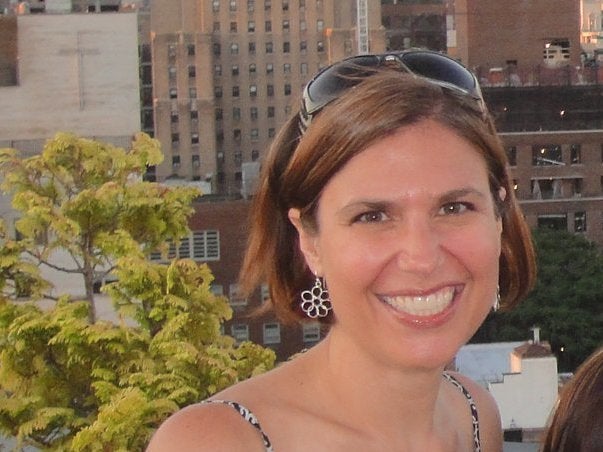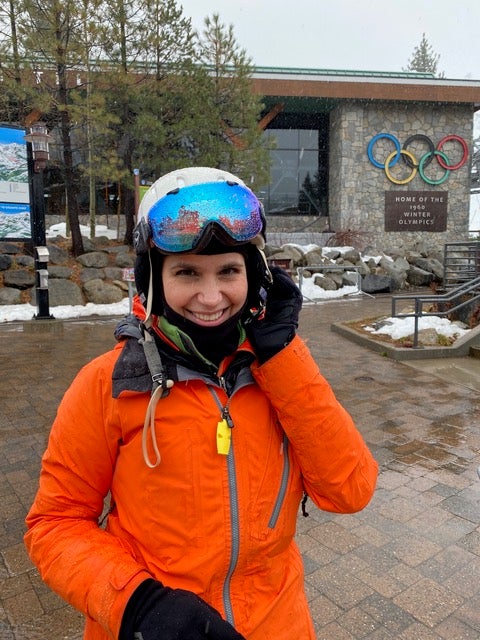‘If you wait, it could be too late’: Family of doctor who died of suicide during pandemic pushes for new law
Dr Lorna Breen’s family are behind a new law that would provide mental health support for medical workers

Your support helps us to tell the story
From reproductive rights to climate change to Big Tech, The Independent is on the ground when the story is developing. Whether it's investigating the financials of Elon Musk's pro-Trump PAC or producing our latest documentary, 'The A Word', which shines a light on the American women fighting for reproductive rights, we know how important it is to parse out the facts from the messaging.
At such a critical moment in US history, we need reporters on the ground. Your donation allows us to keep sending journalists to speak to both sides of the story.
The Independent is trusted by Americans across the entire political spectrum. And unlike many other quality news outlets, we choose not to lock Americans out of our reporting and analysis with paywalls. We believe quality journalism should be available to everyone, paid for by those who can afford it.
Your support makes all the difference.During the worst days of the coronavirus pandemic in New York, in the early spring of 2020, Dr Lorna Breen described the scenes at the Manhattan hospital where she worked as being “like Armageddon.”
The emergency department at the New York-Presbyterian Allen Hospital was operating at three times its capacity due to the influx of Covid patients. When she wasn’t at the hospital, she was often directing her staff over the phone. When she contracted Covid herself, and could barely move, she continued to help from afar. But even as the pandemic took a significant personal toll on her own health, her primary focus was on her patients.
“As a caregiver, one of the hardest parts about COVID is that you’re used to helping people, and when you can’t do that, it is really hard on the psyche. She was absolutely experiencing all of that very clearly,” said J Corey Feist, Dr Breen’s brother-in-law.
Dr Breen died by suicide on April 26, 2020, following an 11-day stay at a psychiatric hospital. She left no note, and experts say suicide is rarely attributable to one factor alone. But since her death, her family has been determined to help other health professionals who are at risk of suffering from burnout and stress.
Mr Feist co-founded the Dr Lorna Breen Heroes’ Foundation along with his wife, Lorna’s sister, Jennifer Breen Feist. The organisation is behind a new law that aims to fill the institutional gaps which make it difficult for healthcare workers to receive mental health support, and it has bipartisan support.
“People are shocked that there are all these barriers to getting mental health help. For you and I, we can go and go to a therapist without any recourse to our livelihoods,” Mr Feist told The Independent. The same is not true for medical professionals, he added.
The profession throws up barriers, some very real and some imagined, according to Mr Feist. Things such as medical licence applications asking questions about an applicant’s mental health history, which could, in theory, impact their chances of employment, encourage a culture of silence in the medical profession.
“It defies logic,” he added. “Even if you don’t know a healthcare worker, everyone’s going to be a patient. And so you want your healthcare workforce to be of sound mind and body so they can take care of you when you become a patient. So not only do they deserve it just individually, but everyone should care about this issue because someday a loved one is going to be a patient.”
Even before the pandemic, research suggested that physicians had one of the highest rates of death by suicide of any profession in America, and women faced a greater risk. More recent studies have found evidence to suggest that the pandemic has contributed to an increase in mental health issues for medical professionals.
Dr Breen’s family is sharing her story in an effort to bring awareness to the risks of burnout and stress on medical professionals. Before the pandemic hit, there was nothing to suggest that she was struggling. She loved the outdoors and would go on annual snowboarding trips with family. She was a latecomer to the cello and joined an orchestra in New York city, where she had dreamed of living and working as a doctor when she was young. She was in the process of studying for an MBA.
“She was very much larger than life,” said Mr Feist. “And before she contracted Covid in March of 2020 she had no known or suspected mental health challenges, she had no substance abuse history,” he added.
Her family first realised that something was wrong during their annual trip. Dr Breen joined her sister and Mr Feist, along with their children, on a vacation to Big Sky, Montana.
“And even though she was on vacation, she was spending a lot of time helping to manage the emergency room operations from a distance,” Mr Feist said. “She was sharing with us a lot of the operational chaos of the situation.”
Dr Breen left on a Thursday morning, two days before she was due back at work. She always made sure she had an extra day after vacation and before work so she would never miss a shift. She returned to work on Saturday and early the next week she contracted Covid.
“What she described to us was very chaotic and overwhelming in the way that they were taking care of patients and just taking care of themselves in the process. They did not know the appropriate precautions to take. And they also did not know what to even always look for in the symptoms of patients,” said Mr Feist.
Dr Breen stayed at home by herself for a week while she recovered from Covid. She lost a lot of weight and was exhausted from the experience. When she wasn’t sleeping, she was on the phone to her staff members trying to manage from afar. Then, when she passed 24 hours without a fever, she went straight back to 10 and 12-hour shifts.
By that point, she told her family that the situation had spiralled out of control.
“Her words were: ‘It’s Armageddon.’ The volume of death and dying that she was observing was completely overwhelming,” said Mr Feist.

It was at this point that, according to Mr Feist, these institutional barriers prevented Dr Breen from seeking the help she needed.
“When it comes to mental health, it is very much a culture where you don’t ask for help. And in fact, if you do, that’s a sign of weakness,” he said.
“From the very first day she was back, she clearly stated to us that she was concerned about her inability to have a job after this because she thought that her colleagues were able to tell that she couldn’t keep up. I can’t speak to whether or not there were resources that were being made available for them at that time, but what I can say is that her own thoughts about the impact on her professional reputation, or taking a break for saying she couldn’t handle it, is what caused her to stay in the workforce, working beyond her 12-hour shifts with no sleep. And it just spiralled, just absolutely spiralled out of control,” he said.
The legislation being championed by the Dr Lorna Breen Heroes’ Foundation has already passed in the Senate and is awaiting final passage in the House. Senator Tim Kaine spoke in support of the bill this week, and urged lawmakers to pass it.
“Many in the medical profession – and surveys have shown this again and again – are reluctant to seek help or reluctant to tell others they need help, because they’re worried, not about their patients, not about their health, but their job,” Mr Kaine said.
The bill would give funding to medical and nursing schools, and local governments, to train medical professionals and students in burnout and suicide-prevention strategies. It would provide funding for programmes to help healthcare workers already in the workforce with mental health treatment. It would fund an awareness campaign targeted at healthcare workers to reduce the stigma around seeking mental health support, and it would allow for further studies into the impact of Covid-19 on the health of medical workers.
Mr Feist said he hoped the attention on the bill, and on Dr Breen’s story, would help others seek help.
“To healthcare workers struggling, I would say a couple of things, first of all, self-care is not selfish. Look for yourself first, and then your colleagues. And if you see someone who’s in trouble or you think you’re in trouble, don’t wait for it to get worse. Take action now. If you wait, it could be too late. That was what happened to us with Dr Breen.”
For help dealing with thoughts of suicide, call the National Suicide Prevention Lifeline at 1-800-273-8255. If you are in the UK and would like to talk to someone about mental health, call Samaritans at 116 123.
